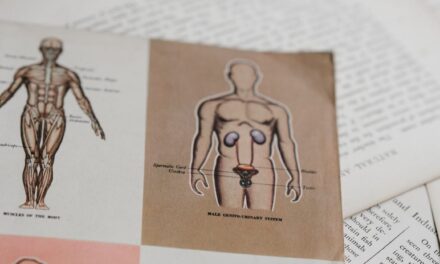 Assistant Editor Caitlin Doyle: Exploring the intersection between nation and citizen is never an easy undertaking for an artist, and poet Lynne Potts braves the task with startling skill in “Family Photo of America” (in our most recent issue, mailed to subscribers just last week!). From the very beginning, via the piece’s title, she invites us to blur the line that separates the personal (“family photo”) from the national (“America”), suggesting the possibility that an ineffable force binds all Americans into something resembling a familial unit. The title, like much of the poem, works both as a tongue-in-cheek appraisal of patriotism’s more problematic elements and a genuine articulation of longing for a sense of homeland unity. Potts starts off in the first stanza searching for the locus, figuratively speaking, of American identity:
Assistant Editor Caitlin Doyle: Exploring the intersection between nation and citizen is never an easy undertaking for an artist, and poet Lynne Potts braves the task with startling skill in “Family Photo of America” (in our most recent issue, mailed to subscribers just last week!). From the very beginning, via the piece’s title, she invites us to blur the line that separates the personal (“family photo”) from the national (“America”), suggesting the possibility that an ineffable force binds all Americans into something resembling a familial unit. The title, like much of the poem, works both as a tongue-in-cheek appraisal of patriotism’s more problematic elements and a genuine articulation of longing for a sense of homeland unity. Potts starts off in the first stanza searching for the locus, figuratively speaking, of American identity:
Where does it exist? Under the semaphore, after the rock band,
when the shoe drops? You can’t tell with a state of mind—
with a state like America, once all woodsy, then prairie dog,
then John Deere with a flouncy awning over the driver,
blimps over stadiums, rubber gloves, stainless escalators
buoyed up, and all with heart, yes—flags and tubas.
Throughout “Family Photo of America,” Potts not only explores objects, landscapes, and rituals associated with life in the US, she also cues us to pay close attention to American colloquialisms. Her use of the expression “when the shoe drops” suggests a darker version of our country than the America evoked by “tubas” and “blimps over stadiums.” The proverbial shoe seems to hang over the rest of the poem, forever ready to drop, an indication that we can’t eschew the uglier aspects of our national history by focusing on nostalgia-steeped images like a John Deere “with a flouncy awning over the driver.” Shades of darkness also lurk in her mention of “rubber gloves,” a detail that, even while it points to safe and sanitary health care practices, ultimately emphasizes their coldly clinical aspects.
Potts plays in canny ways with the word “state,” likening America to a “state of mind” while simultaneously prompting us, through the simile “a state like America,” to think about the US as a state rather than a country. Aware that readers will instantly question that phrase (“shouldn’t it be country like America rather than state like America?”), she spurs us to reflect on our country as a place divided into fifty states, many of which exist in various forms of friction— political, social, and economic—with each other. In essence, through asking us to consider “America” as one unified state (whether as a singular “state of mind” or a single geographical state), Potts paradoxically heightens our sense of the US as a country marked by measureless divisions.
In her penultimate stanza, Potts brings the shoe back into our purview: “But what about the left shoe you ask: Is it a left shoe or / shoe left on the step of a small bungalow in Bellflower, / California, where a grandmother with knuckled index finger / points to the best spot for burying coffee grounds?” We learn, a few lines later, that the woman described here is the speaker’s own grandmother: “She’s / mine—all four sons shot, one in war, two on alcohol, one himself, / and a daughter who died early, her crooked index finger mine.” Potts moves from the generic registers of colloquial American speech that we encounter earlier in the poem (“when the shoe drops”) to the particulars of a specific shoe, on a specific step, in a specific place. She implies that, even amidst the highly generalized and clichéd ideas about patriotism, America is a nation where idiosyncratic individualism exists and even flourishes.
Potts ends by describing a family photo of America, an imagined snapshot expansive enough to hold every person in the country, living and dead, like relatives posing for the camera at a reunion: “All here in the picture waving, waving, though which kind / of wave you don’t know.” No matter how you might try to discern the full scope or meaning of the photo, she asserts, “you can’t tell in this land where / you landed, except you’re here, waiting in the line with your groceries, / with some kind of soft spot, albeit hid, in your heart, for America.” Just as she does with “state” in the first stanza, Potts here repeats and varies words (waving/wave, landed/land, etc) in a way that warns us to be vigilant about the protean nature of language. Creating a mimetic analogy between her poem’s style and content, she indicates that notions of national identity, much like words themselves, can’t be pinned down because they’re always shifting.
Arguably, the word that undergoes the biggest transformation in the poem is “heart,” which appears in the first stanza as an irony-tinged term, juxtaposed with “rubber gloves” and “stainless escalators.” When we encounter “heart” again, this time in the final stanza, Potts presents it as an organ of emotion that harbors a “hidden” soft spot for America. She dexterously avoids both oversentimentality and its opposite extreme by allowing just enough sincerity to peek through the poem’s cynicism. We love America in spite of itself, she seems to say, and America loves us back in spite of ourselves, a relationship we can never hope to fully understand.
To read Lynne Potts’ unforgettable “Family Photo of America,” look for it in our most recent issue of The Cincinnati Review, 14.2! It’s currently available for purchase in our online store, and digital copies are only $5.












